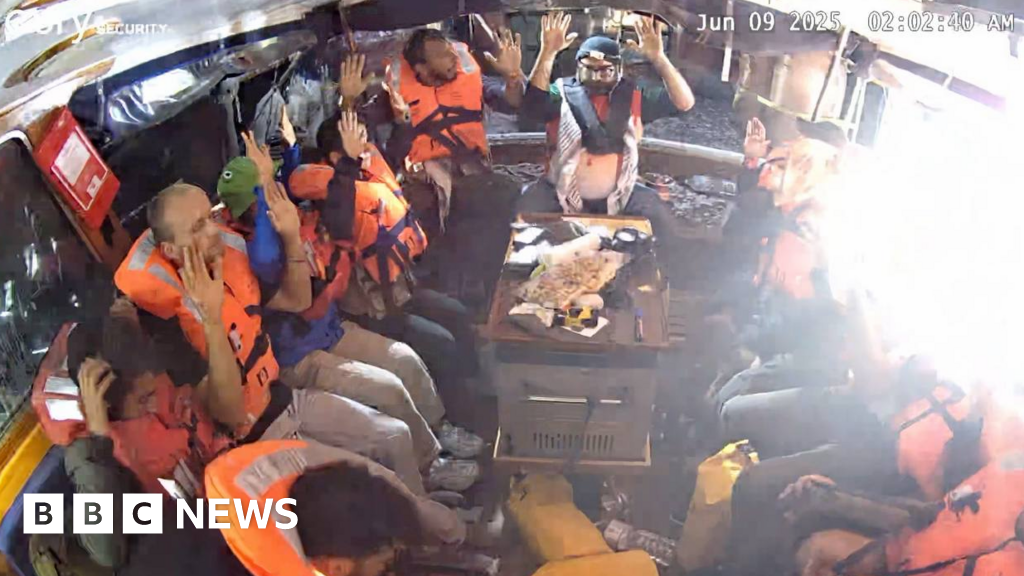ARTICLE AD BOX
By Hugh Schofield
BBC News, Paris
Image source, Getty Images
Image caption,The Stade de France in Paris
A week has gone by but the stadium "fiasco" remains a hot issue in France, with new and harrowing accounts about the breakdown in law and order when the match had come to an end.
Among Liverpool fans whose translated testimony has been circulating widely on social media is UFC champion Paddy Pimblett, who said he had "never been so scared in my life … as when I came out of that ground on Saturday night".
"At least when you are in a cage it is one against one," the mixed martial artist said.
"There were groups of 30 men, running around in big packs. Some of them had weapons: machetes, knives, bars and bats. People were being pinned to the floor and having their watches taken.
"I saw people having their handbags taken off them, when [the thieves] would pull the bag from them and then slice the [strap] with a knife.
Image source, Getty Images
Image caption,Real Madrid said in a statement that "football has transmitted an image to the world which is far away from the values and goals which it should pursue".
"The only thing I can compare it to is something like the film The Purge - where you can do what you like for 12 hours. There were no laws."
The Purge depicts an American dystopia where every year all crimes including murder are decriminalised for half a day.
Real Madrid football club added its voice yesterday to those calling for an investigation into the violence against its fans who, it said, had been left "helpless and defenceless".
"Many of our supporters were attacked, harassed, set upon, mugged. Some even had to spend the night in hospital because of their injuries," the club said in a statement.
The head of a French police union said his colleagues "had never seen anything like it".
"At the start the ones jumping through the turnstiles were mainly locals, but very quickly other profiles emerged. Minors or pseudo-minors, foreigners, ultra-violent types from God knows where. Then everything changed," Patrice Ribeiro of Synergie-officiers told Le Figaro newspaper.
"They were attacking women, children, old people, and then merging back into the crowd when the police came. Some victims actually had their clothes taken from them."
The post-match violence threatens to be an issue in parliamentary elections that will be held in two rounds from next weekend - with conservative and far-right opponents of President Macron spotting a massive opportunity.
For them, the real story was less the failures of organization (though these undoubtedly existed) and certainly not hooliganism by Liverpudlians (of which there was next to no evidence) - but rather the eruption of more banlieue-style thuggery from the high-immigration areas around Saint-Denis.
More outrageous yet was the government's clear reluctance to call this out, for fear (according to critics) of alienating centre-left opinion by "stigmatising" the people of the Paris suburbs.
Little wonder that far-right leader Marine Le Pen is using the fiasco to galvanise her electorate ahead of the parliamentary vote.
"France has offered up a spectacle of what it is becoming," she tweeted. "A zone of general lawlessness."
Image source, Getty Images
Image caption,Ms Le Pen has seized on the disorder to attack President Emmanuel Macron's administration
In fact Marine Le Pen's National Rally (RN) is not the main threat to Macron at these elections. The real threat is from the left, and a new alliance created behind the radical Jean-Luc Mélenchon.
But if the effect of the Stade de France is to draw disaffected right-wing voters away from the Macron camp (where they'd pitched their tents in order to keep out Mr Mélenchon) and towards the RN (because "Marine told it like it is"), then the president's advantage over the left is weakened.
And that could tell when the results come in on June 19.

 3 years ago
72
3 years ago
72








 English (US) ·
English (US) ·